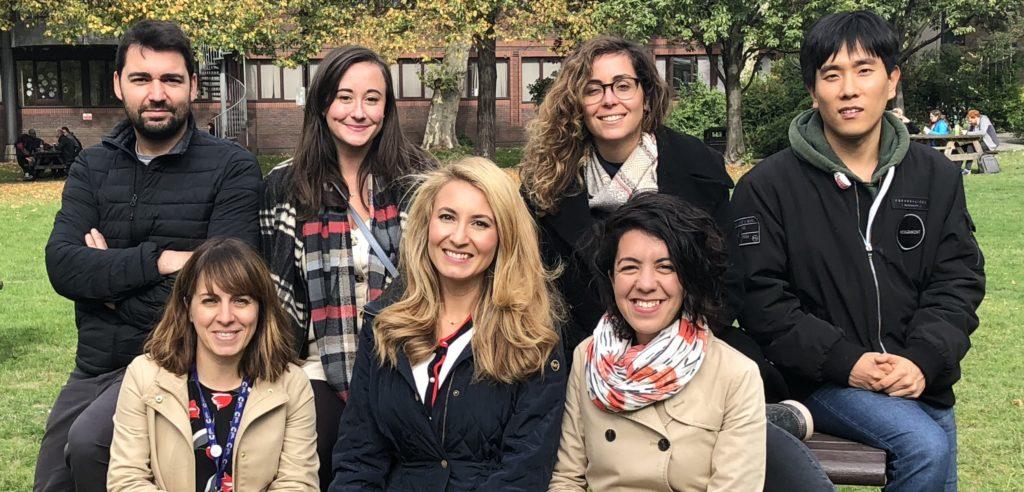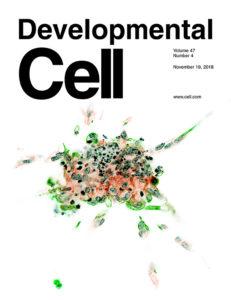‘The neighbouring effect’: Centrosomal abnormalities drive invasion of surrounding cells

Centrosomal amplification, a particular change that occurs within some cancer cells, has been shown to drive the invasion of neighbouring cancer cells in a recent study by researchers from the BCI, led by Dr Susana Godinho, and the Francis Crick Institute.
The spread of cancer cells from one part of the body to another, known as metastasis, is one of the biggest causes of cancer mortality. Drugs can stop or slow the growth of some metastatic cancers, however the majority of these cancers cannot be cured by current treatments. It is therefore vital to understand how cancer cells invade and identify ways to stop this.
Tumours are made up of multiple populations of cells with different characteristics. Some cells within a tumour may develop an abnormal number of centrosomes- a cellular structure that is important for cell division. This centrosomal abnormality has been found in a variety of cancer types, including breast and pancreatic cancer.
Changing the behaviour of neighbouring cells

The new study, published today in Developmental Cell, found that cancer cells with extra centrosomes do not only exhibit altered behaviour themselves, but they also surprisingly change the behaviour of surrounding cells in the tumour, causing them to invade and become more aggressive.
By using cell lines from humans and pre-clinical breast cancer models, the team revealed that this change in cell behaviour is caused by the release of pro-invasive factors from the cells carrying additional centrosomes. One of these factors was found to be IL-8, a pro-inflammatory cytokine previously associated with cancer progression.
Implications for cancer treatment
Although previous research has shown that it is possible to target and kill cells with extra centrosomes, the overall impact of killing these cells on the eradication of the tumour has remained uncertain as only a small percentage of cells in a tumour may contain this abnormality. However, the ability of cells that carry extra centrosomes to alter the behaviour of the surrounding tumour cells and promote cancer spread suggests that targeting the subset of cells with this abnormality may have a greater impact in the clinic than originally thought.
Dr Godinho said: “These findings suggest that even in small populations within tumours, cancer cells with amplified centrosomes can have a broader impact in tumourigenesis than previously anticipated by changing the surrounding cells and possibly microenvironment.”
Future directions
The team would now like to investigate the broader roles that cancer cells with additional centrosomes may have on the tumour environment, and determine the effect of targeting these cells for cancer treatment. The team endeavour to explore this in pancreatic cancer, a devastating cancer type for which effective treatments are lacking.
This work was supported by the Medical Research Council, BBSRC, Cancer Research UK and a Lister Institute Research Prize.
Category: General News, Publications

No comments yet